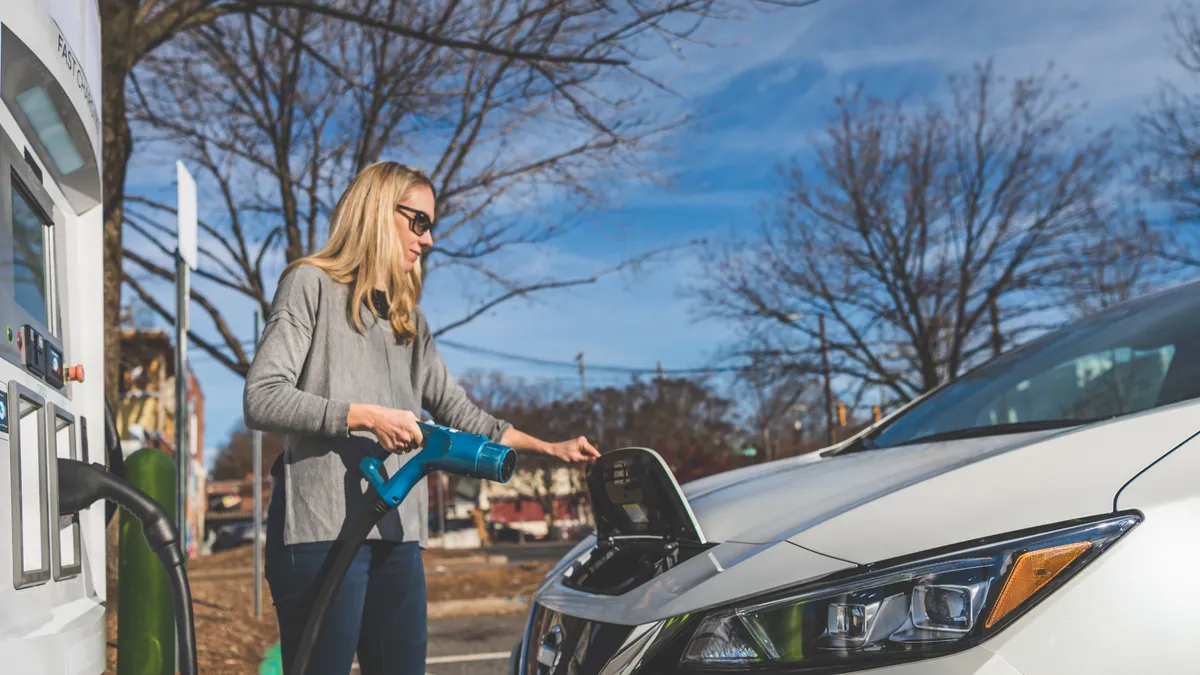Dive Brief:
-
Kentucky regulators on Friday ruled that electric vehicle charging stations are not considered utilities under state law.
-
The order by the state's Public Service Commission (PSC) removes any ambiguity over whether charging ports should be regulated as a utility, finding that chargers do not provide a public service in the same way.
-
Though Kentucky only has 94 charging stations, interest is growing, and regulators launched the proceeding in November 2018 "due to the policy import of the issue," the PSC said in its order.
Dive Insight:
EV proliferation across the country is putting pressure on state regulators to resolve uncertainties on how charging stations should be regulated under state law.
Iowa, Vermont and California have all similarly ruled charging ports should not be regulated in the same way as an electric utility. In total, "almost 50 percent of states have concluded that [EV charging stations] are not utilities," Kentucky's order read.
EV proponents say regulatory uncertainty can be a hindrance to greater deployment.
Kentucky's EV market is fairly small — it remains in the bottom 10 states for the number of electric vehicles per 1,000 people and has less than total 1,500 EVs on the road.
In this case, regulators evaluated whether the stations met three criteria, which under Kentucky law would have made them a public utility:
-
If the entity generates, produces, transmits or distributes electricity;
-
If it provides electricity "for lights, heat, power, or other uses;" and
-
If it receives compensation for the power it provides to the public
Nine groups, including utilities, electric cooperatives and EV groups, weighed in on the decision. The majority concluded in their comments that charging stations do not meet all of these criteria, primarily because their power distribution "ends at the meter."
The commission said "the defining characteristic of a public utility is service to, or readiness to serve, an indefinite public, which has a legal right to demand the utility's service." Because charging station service is "limited to a specific, defined class of persons" who own EVs, charging ports don't qualify.
The only party that took the position that EV chargers should qualify as a regulated utility was Kentucky Power, which argued the power supplied from a charger to a vehicle "constitutes retail electric service" that the public pays money for.
Alliance, a non-profit group made up of utilities, EV infrastructure companies and other stakeholders, suggested the commission keep the case open to workshop ideas and gather more information around the subject. The PSC ruled the group "failed to provide sufficient evidence to establish good cause to keep this proceeding open," and ordered the case closed.















